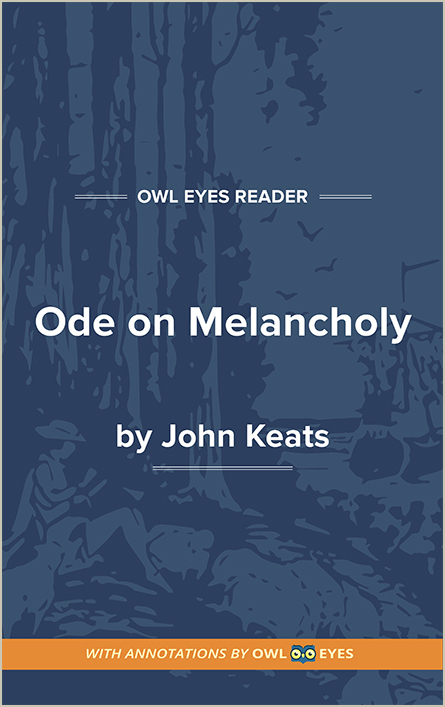Analysis Pages
John Keats Biography
Born in London, England, on October 31, 1795, John Keats (keets) was the son of Frances and Thomas Keats, the manager of a livery stable in the north of London. The oldest of four children, two brothers and a sister, Keats was eight years old when his father fell from a horse and suddenly died. The death of Keats’s father and his mother’s sudden decision to remarry had a dramatic effect on the poet’s life. When Alice Jennings, Keats’s maternal grandmother, heard of her daughter’s decision to marry again, she arranged to have the Keats children come live with her and her husband, John Jennings. This move eventually resulted in the children moving to a different suburb of the city, Enfield, where Keats and his brother, George, began school. This development was a key moment in Keats’s early life.
The Enfield school, which was run by the Reverend John Clarke, not only introduced Keats to the various pleasures of literature, which of course was to become the consuming passion of his life, but also brought the young poet into contact with the Reverend Clarke’s precocious and well-read son, Charles Cowden Clarke. Charles Clarke, who was eight years older than Keats and who eventually became an important writer, too, quickly established himself as Keats’s mentor and friend. It was through his new friend that Keats encountered many of the books that were to play an important role in his poetry.
In March, 1810, Keats’s mother died of tuberculosis. This event was not the sudden blow that his father’s earlier death had been, but it was no less traumatic. It is difficult to know precisely how this loss shaped the young man’s character, but it is quite likely that this event, combined with the earlier death of his father, deepened the poet’s sense of the tragic nature of human existence. As a result, the transitoriness and pain of life are themes that run throughout his poems and letters. Indeed, he would eventually develop the belief that suffering and death are essential to the growth of the human soul, for it is death and suffering that awakens one to the intense beauty of life. People only come to feel the glory of life and the wonder of existence when it is suddenly taken from them, Keats concluded.
At the age of fourteen, Keats became the head of the Keats family. He might have remained in school and gone on to receive a university education, since there was a provision in a trust fund set up by his grandmother that would cover those costs. Yet because of legal complications and the incompetency of Richard Abbey, a London tea merchant who was assigned as guardian for the children upon the death of their mother, Keats was denied his inheritance and, instead, apprenticed to Thomas Hammond, a local apothecary-surgeon. For the next four years, Keats studied medicine with Hammond. This intense training in medicine was relieved only by occasional visits to the nearby Charles Clarke to borrow books and discuss literature.
In 1815, at the age of nineteen, Keats moved to London proper to do his student internship at Guy’s Hospital, where he lived and worked for the next two years. It is difficult to overestimate the impression that Guy’s must have made on the young poet, whose first responsibility at the hospital was dressing surgical wounds. The sights and sounds of the operating and recovery rooms must have been extremely poignant, particularly since these rooms were filled with patients who had been surgically treated without the benefit of anesthetics. Keats had already experienced the deep emotions of suffering and loss through the death of both parents; now, he was to see that same agony and death displayed on a much larger scale and on a more regular basis in his daily rounds at the hospital.
During his two years at Guy’s, Keats became increasingly convinced that poetry was to be his life’s work. Life and death were the dominant concerns of his days, but reading and writing were the governing passions...
(The entire page is 1,315 words.)
Owl Eyes subscribers get unlimited access to our expert annotations, analyses, and study guides on your favorite texts. Master the classics for less than $5/month!

